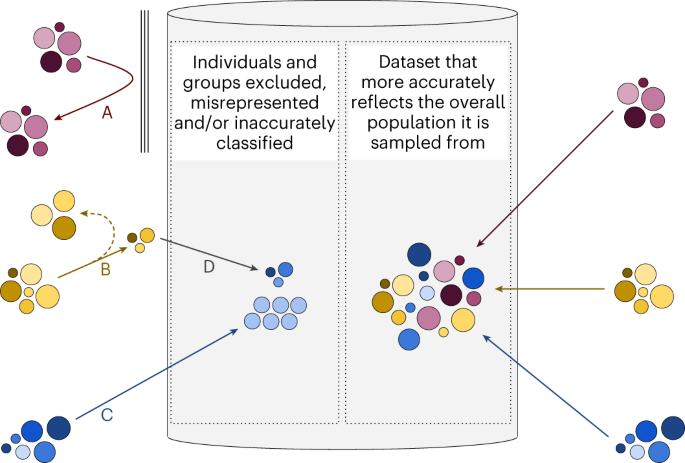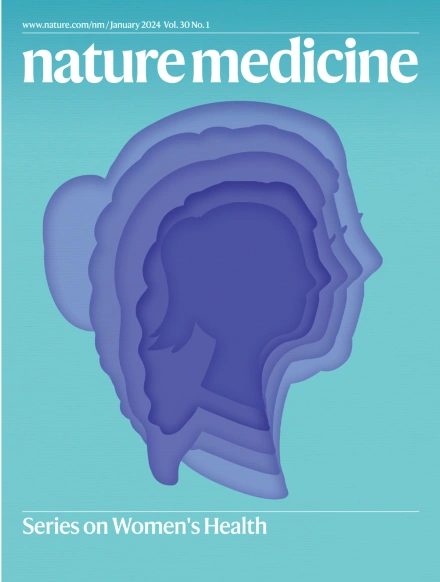健康数据集标准在基于人工智能的应用中的价值。
IF 58.7
1区 医学
Q1 BIOCHEMISTRY & MOLECULAR BIOLOGY
引用次数: 0
摘要
人工智能作为一种医疗设备,正越来越多地应用于医疗保健的诊断、风险分层和资源分配。然而,越来越多的证据强调了算法偏见的风险,这可能会使现有的健康不平等现象长期存在。出现这个问题的部分原因是数据集管理方面的系统性不平等、参与研究的机会不平等以及访问的不平等。本研究旨在探索现有的标准、框架和最佳实践,以确保健康数据集的数据多样性。探索现有文献和专家观点是制定基于共识的指导方针的重要一步。该研究包括两个部分:对医疗数据集的现有标准、框架和最佳实践进行系统审查;以及对利益攸关方对人工智能作为医疗设备的偏见、健康公平和最佳做法的看法进行调查和专题分析。我们发现,文献中对数据集多样性的需求有很好的描述,专家们普遍支持制定一套强有力的指导方针,但对于如何在实践中实施这些指导方针,人们的看法不一。这项研究的成果将用于制定卫生数据集数据多样性透明度标准(“站在一起”倡议)。本文章由计算机程序翻译,如有差异,请以英文原文为准。

The value of standards for health datasets in artificial intelligence-based applications
Artificial intelligence as a medical device is increasingly being applied to healthcare for diagnosis, risk stratification and resource allocation. However, a growing body of evidence has highlighted the risk of algorithmic bias, which may perpetuate existing health inequity. This problem arises in part because of systemic inequalities in dataset curation, unequal opportunity to participate in research and inequalities of access. This study aims to explore existing standards, frameworks and best practices for ensuring adequate data diversity in health datasets. Exploring the body of existing literature and expert views is an important step towards the development of consensus-based guidelines. The study comprises two parts: a systematic review of existing standards, frameworks and best practices for healthcare datasets; and a survey and thematic analysis of stakeholder views of bias, health equity and best practices for artificial intelligence as a medical device. We found that the need for dataset diversity was well described in literature, and experts generally favored the development of a robust set of guidelines, but there were mixed views about how these could be implemented practically. The outputs of this study will be used to inform the development of standards for transparency of data diversity in health datasets (the STANDING Together initiative). A systematic review, combined with a stakeholder survey, presents an overview of current practices and recommendations for dataset curation in health, with specific focuses on data diversity and artificial intelligence-based applications.
求助全文
通过发布文献求助,成功后即可免费获取论文全文。
去求助
来源期刊

Nature Medicine
医学-生化与分子生物学
CiteScore
100.90
自引率
0.70%
发文量
525
审稿时长
1 months
期刊介绍:
Nature Medicine is a monthly journal publishing original peer-reviewed research in all areas of medicine. The publication focuses on originality, timeliness, interdisciplinary interest, and the impact on improving human health. In addition to research articles, Nature Medicine also publishes commissioned content such as News, Reviews, and Perspectives. This content aims to provide context for the latest advances in translational and clinical research, reaching a wide audience of M.D. and Ph.D. readers. All editorial decisions for the journal are made by a team of full-time professional editors.
Nature Medicine consider all types of clinical research, including:
-Case-reports and small case series
-Clinical trials, whether phase 1, 2, 3 or 4
-Observational studies
-Meta-analyses
-Biomarker studies
-Public and global health studies
Nature Medicine is also committed to facilitating communication between translational and clinical researchers. As such, we consider “hybrid” studies with preclinical and translational findings reported alongside data from clinical studies.
 求助内容:
求助内容: 应助结果提醒方式:
应助结果提醒方式:


